“Actions by the Trump administration and its allies in the hemisphere are almost certain to make the situation in Venezuela worse, leading to unnecessary human suffering, violence, and instability,” an open letter by over 70 scholars and experts that condemns the multinationally-supported coup attempt. “The U.S. and its allies must cease encouraging violence by pushing for violent, extralegal regime change. If the Trump administration and its allies continue to pursue their reckless course in Venezuela, the most likely result will be bloodshed, chaos, and instability.” Negotiations led by Mexico, Uruguay, and the Vatican are the only sane way forward.
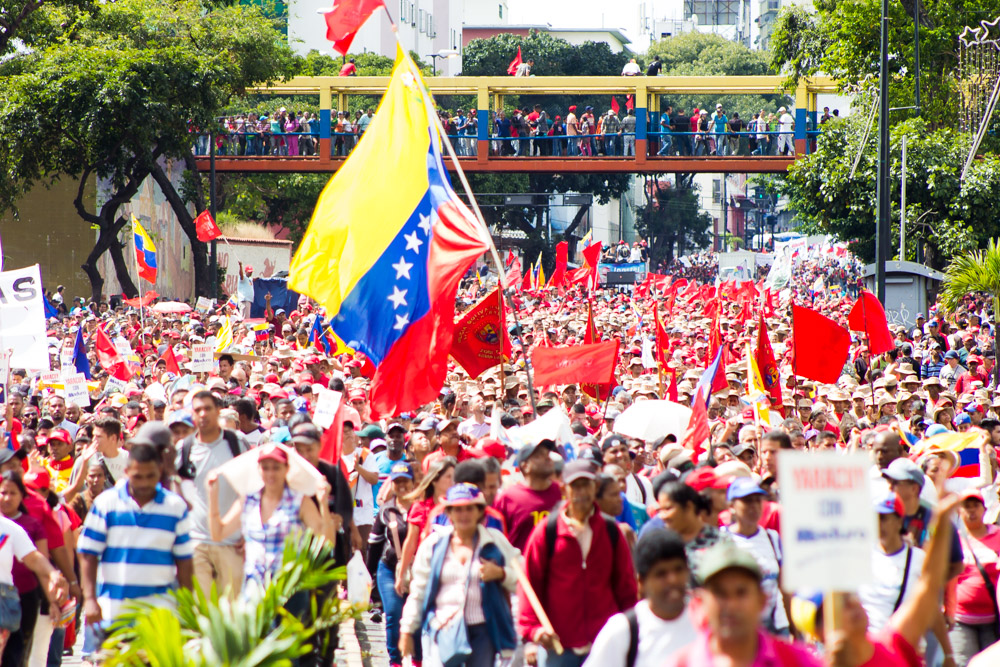

Stopping Venezuela’s Regime Change Sponsored by the Fossil Fuel Cabal
An attempted coup is underway in Venezuela, call it what you like: regime change is a favored nicety. Here are the basics: On January 23rd, Juan Guaidó, a relatively unknown second-string politician from the right-wing Popular Will party, declared himself acting president, despite the fact that he did not even run for the office. Nicolás Maduro Moros was re-elected in May of last year in a vote that the opposition might have won had they not boycotted it.
Guaidó immediately set his sights on the country’s state-owned oil company PDVSA (Petroleos de Venezuela, SA), which he hopes to restructure and move toward privatization. He is also seeks money from the notorious International Monetary Fund (IMF) to fund his self-appointed government.
Guaidó was elected to the opposition-controlled National Assembly, recently assuming the Assembly presidency through an informal power-sharing agreement among the opposition’s political parties. Only a few months ago, the 35-year-old was an obscure character in a politically marginal far-right group closely associated with street violence. Fellow high-profile opposition members Julio Borges and Carlos Vecchio were designated as Guaido’s representatives before the Lima Group (of right-wing Latin American nations) and Washington respectively. Both have been associated with violent attempts against the Maduro government in recent years, with Borges implicated by authorities in the August drone terrorist attack and Vecchio having fled charges including arson and instigation of violence in 2014.
Washington has nevertheless recognized this rogue’s gallery, followed by Canada, Latin America’s right-wing-controlled governments of Brazil, Argentina, and Colombia, and of course the ever-following-along-for-regime-change United Kingdom, and the latest is the European Union.
httpvh://youtu.be/VMplqEpfGhs
Venezuela Propaganda Debunked -People Are Against Coup – Jimmy Dore with Empire Files
Fellow Latin American and Caribbean countries, like Mexico, Uruguay, Bolivia, Nicaragua, and Cuba objected to the intervention and defeated a resolution at the Organization of American States (OAS).
For their part, China and Russia, who have significant oil contracts with PDVSA, also reacted to Washington’s move, while internationally the price of oil remained steady. Russia’s Kremlin spokesperson Dmitri Peskov described the restrictive measures as “illegal” and reinforced his government’s support for Caracas. CITGO was used as collateral for a loan deal with Russian state oil company Rosneft. Chinese authorities also responded to the measures, with Foreign Ministry spokesperson Geng Shuang claiming that they are “unilateral” and that his government “opposes them.”
While Guaidó seemed to have materialized out of nowhere, according to the Grayzone Project, he was, in fact, the product of more than a decade of assiduous grooming by the US government’s elite regime change factories. Alongside a cadre of right-wing student activists, Guaidó was cultivated to undermine Venezuela’s socialist-oriented government, destabilize the country, and one day seize power.
“If the Trump administration and its allies continue to pursue their reckless course in Venezuela, the most likely result will be bloodshed, chaos, and instability” — Letter from 70 Scholars Condemning the Coup Attempt
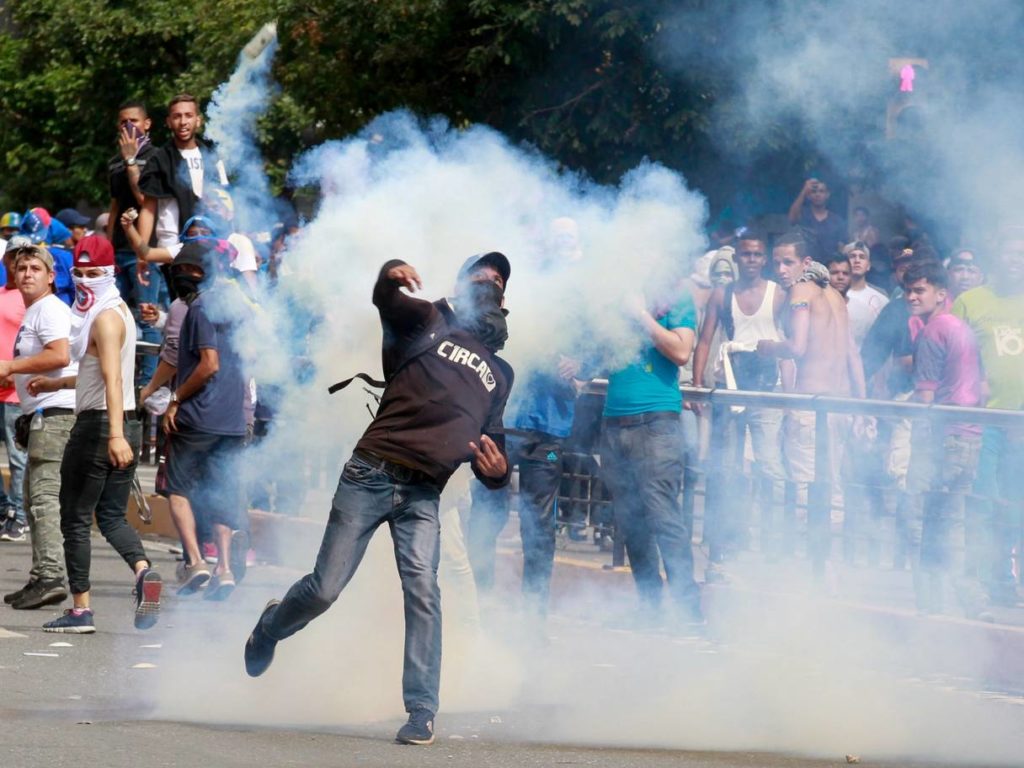

Destabilization and De-legitimization of the Bolivarian Revolution with Economic and Political Warfare
Venezuela has the world’s largest oil reserves, and an abundance of other natural resources including gold, bauxite and coltan. Thus they make a prime candidate for overthrow, with the privatization of the state-owned oil company PDVSA as Trump’s multinational benefactors great dream. This US demagogue needs a war to shift the narrative in his messed legal and political woes domestically. Furthermore, he has tacit bipartisan support, because in the question of military supremacy, both political parties do what they are told. Coup plotters liberal and conservative present the aggression as being out of concern for democracy, constitutionality, and human rights.
To make the stilted case for forced regime change through financial strangulation, the Rothschild Bank of England’s decision to seize more than a billion dollars’ worth of Venezuelan gold was reported to have been ordered after a call from US National Security Advisor John Bolton and Secretary of State Mike Pompeo – not even the president himself.
Alfred de Zayas, the first UN rapporteur to visit Venezuela for 21 years, declared the US sanctions on the country are illegal and could amount to “crimes against humanity” under international law. On his fact-finding mission to the country in late 2017, he found internal over-dependence on oil, poor governance and corruption had hit the Venezuelan economy hard, but said “economic warfare” practiced by the US, EU, and Canada are significant factors in the economic crisis.
“Modern-day economic sanctions and blockades are comparable with medieval sieges of towns. Twenty-first century sanctions attempt to bring not just a town, but sovereign countries to their knees,” Alfred de Zayas, a former secretary of the UN Human Rights Council (HRC) and an expert in international law, said in his report.
US sanctions prohibit dealing in currencies issued by the Venezuelan government. They also target individuals, and stop US-based companies or people from buying and selling new debt issued by PDVSA or the government. Thus, their foreign oil revenues cannot be repatriated into the country, and they cannot restructure their debt to deal with the economic pain experienced in the country, and misery has followed.
The US has previously defended its sanctions on Venezuela, with a senior US official saying in 2018: “The fact is that the greatest sanction on Venezuelan oil and oil production is called Nicolas Maduro, and PDVSA’s inefficiencies.” Since 2015 around 1.9 million people have fled the country and on 23 October 2018 inflation reached 60,324 per cent, while the civilian death toll is unknown.
An import collapse, caused by the massive decline in oil production, is the main cause of Venezuela’s economic implosion. Maduro’s and Chavez’s governance failed to implement a viable restructuring to confront this oil-dependence, a resource responsible for destabilizing the global climate, so the collapse of the international crude price in 2015 started their fall in production. Some posit that collapse was a US-Saudi conspiracy since the economic victims were Russia and Venezuela, two of the countries the US is trying to regime change. Oil is 95% of Venezuela’s revenue from exports, and 25% of its GDP.
Problems intensified for Venezuela when their oil industry lost access to credit markets in 2017. At that time, their lending viability became progressively “toxic”, in the sense that financial intermediaries dealing with the country had to be ready to pay high reputational and regulatory costs. The resulting loss of access to credit appears to have helped precipitate the collapse in oil output, driving the resulting economic contraction.
There has been much mismanagement by Maduro’s government, including problematic monetary policies. Moreover, Chavez should have put far more of the oil revenues away during the boom times, which could have softened the transition to a more modest economic output. Yet, oil production and hence revenues really declined because of Executive Order 13.808, issued on August 25 of 2017, barring U.S. persons from providing new financing to the Venezuelan government or PDVSA. This made the economic collapse happen definitively.
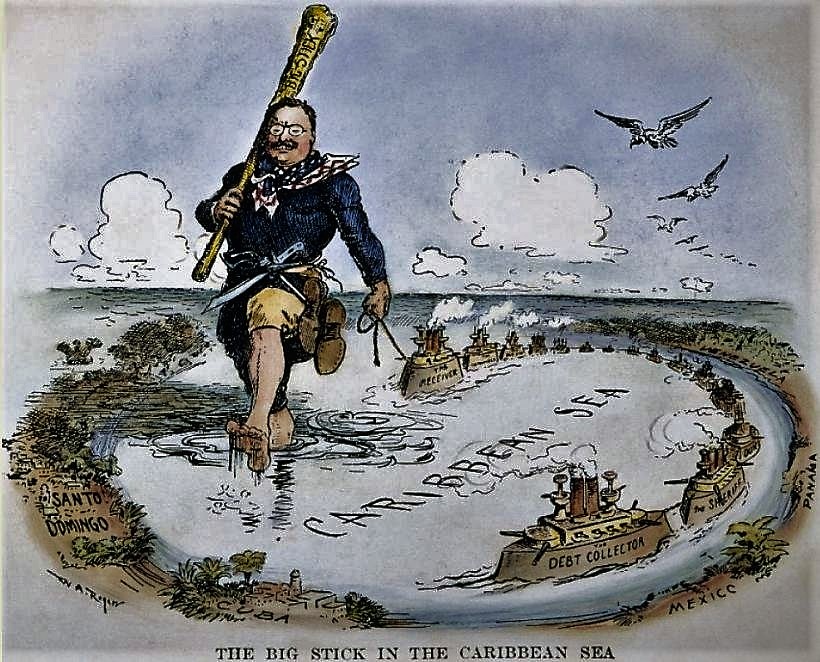

A History of Intervention and Destruction in Latin America
While the U.S. says it’s trying to rescue Venezuela’s democracy, Washington has a long history of interventions — military and otherwise — in Latin American politics. The Trump administration foray into promoting Guaidó makes real his assertion in the summer of 2017, where, citing George H.W. Bush’s 1989–90 invasion of Panama as a positive precedent, he repeatedly pushed his national-security staff to launch a military assault on the crisis-plagued country.
The US has 79 military bases in Latin America. As with all US foreign policy, they use these bases to promote the interests of US corporations and prop up global Neoliberalism. As US Marine General Smedley Butler (1881-1940) said in his 1935 classic, “War is a Racket”:
“I spent 33 years and four months in active military service and during that period I spent most of my time as a high class muscle man for Big Business, for Wall Street and the bankers. In short, I was a racketeer, a gangster for capitalism. I helped make Mexico and especially Tampico safe for American oil interests in 1914. I helped make Haiti and Cuba a decent place for the National City Bank boys to collect revenues in. I helped in the raping of half a dozen Central American republics for the benefit of Wall Street. I helped purify Nicaragua for the International Banking House of Brown Brothers in 1902-1912. I brought light to the Dominican Republic for the American sugar interests in 1916. I helped make Honduras right for the American fruit companies in 1903……Looking back on it, I might have given Al Capone a few hints.”
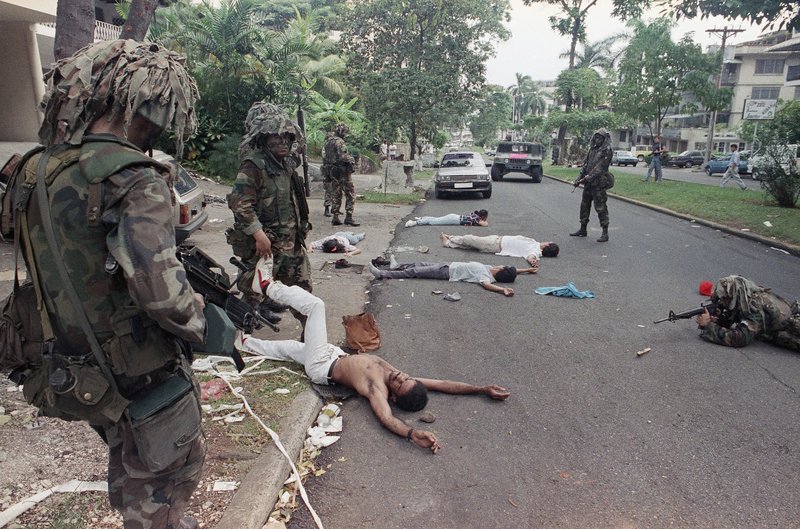

Since the advent of the Monroe Doctrine in the early 19th century, the United States has involved itself in the daily affairs of nations across the hemisphere, often on behalf of North American commercial interests or to support right-leaning forces against leftist leaders. In 1846, they took a massive portion of Mexico away to become the Western US. In 1903 Panama and Cuba were taken over with Teddy Roosevelt’s “Walk tall and carry a big stick” diplomacy.
In 1954, the CIA supporting factions of the Guatemalan military overthrew President Jacobo Arbenz. 1961 Bay of Pigs, 1964-5 Brazil and Dominican Republic taken over, and the 1970s saw military putsches allied through the CIA’s Operation Condor to overthrow leftist governments in Argentina and Chile. All of these conflicts ushered in massive suffering of the people all in service for keeping Latin America safe for multinational capitalism.
The 1980s saw anti-communism red-scaring insanity leading the US to wage an undeclared decade-long war of destabilization and economic sabotage against the Sandinistas of Nicaragua, just after they had broken 40 years of the Somoza family dictatorship. El Salvador suffered through a civil war fueled by US-backing of right-wing death squads. None of the U.S. officials and close to none of the Central American military leaders responsible for mass murder — El Salvador left 80,000 dead, Guatemala between 200-250,000 dead, and thousands more killed by the US-backed Nicaraguan Contras— has faced justice for war crimes.
“Neither side in Venezuela can simply vanquish the other. The military, for example, has at least 235,000 frontline members, and there are at least 1.6 million in militias. Many of these people will fight, not only on the basis of a belief in national sovereignty that is widely held in Latin America in the face of what increasingly appears to be a US-led intervention, but also to protect themselves from likely repression if the opposition topples the government by force.” — Letter from 70 Scholars Condemning the Coup Attempt
Grenada and Panama also went down to the regime-change-machine in the 1983 and 1989 respectively. In the 1990s, the US reinstalled Jean Bertrand Aristide to power after a coup, only to overthrow him years later. In 2002, George W. Bush’s Administration organized regime change against Hugo Chavez that only lasted three days. And then, 2009 saw the Obama Administration and Secretary of State Hilary Clinton back a coup to remove Honduran President Manuel Zelaya, leaving the country to the corporatocracy that has made it the failed-state that it is today.
Negotiations, Not Forced Intervention, is the Only Way Forward
Dangerously, the most recent appointment of Elliott Abrams to the “democratic transition team” by Trump and company signals an ominous mix of blood and destruction in the air. This is the man who pleaded guilty to lying to Congress about his support of the Nicaraguan Contras, known for their “pattern of brutality against largely unarmed civilians, including rape, torture, kidnappings, mutilation and other abuses.” Abrams had been involved in covering up abuses from right-wing death squads in El Salvador and went to advise on counterinsurgency and other policy in Iraq, where the U.S. military trained local Iraqis to exercise the “El Salvador option” that left many tortured, disappeared and dead. He also was involved in George W. Bush’s move to back a coup against Chavez in 2002.
We have seen this playbook taken out on the people of Latin America and the world before. It is not pretty. Thus, for the sake of the Venezuelan people, the region, and for the principle of national sovereignty, the only way forward is for negotiations led by, not the coup-plotters, but by principled Latin American neighbors such as Mexico and Uruguay, accompanied by the Vatican. This will allow the country to finally emerge from its political and economic crisis.
Updated 31 January 2019



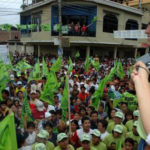
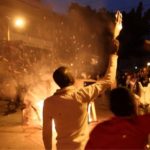
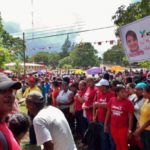
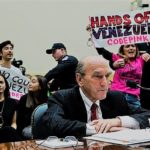



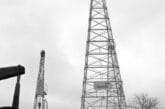


Pingback: Coup Redux in Venezuela: 'The Revolution Will Not Be Televised' | WilderUtopia.com
Pingback: 12 Reasons to Try Elliott Abrams in the Intl Criminal Court | WilderUtopia.com
Pingback: Panama Hydroelectric “Clean Energy”: Village of the Dammed